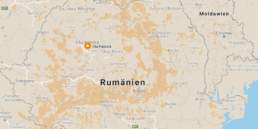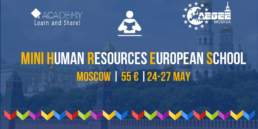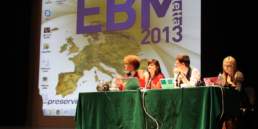Let’s shape the future of Ukraine. How? The conference “Young Ukraine”, taking place on 13th of October, right before the Agora, will provide some answers. The organisers around former CD member and Agora Chair Alla Resheten and Policy Officer Armenak Minasyants created an exciting programme with three high-profile panels. 250 participants will get the chance to discuss the future of Ukraine from a political end economical point of view. The Golden Times asked Alla and Armenak for more information.
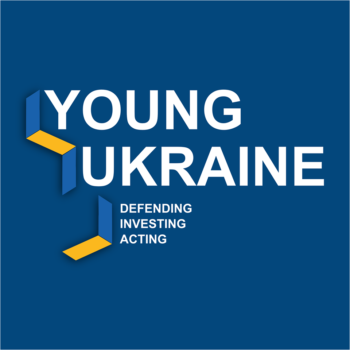
GT: Why do you organize the Agora Pre-event “Young Ukraine”?
Alla Resheten: First of would I like to clarify that the conference Young UA is not a pre-event for the Agora, as we are not going to have a usual AEGEE event – for example there will be no officially organised parties. The Young Ukraine Conference is a big thematic event, organised by AEGEE-Kyiv in order to finalise the six-months long project “reBuilding democracy”, launched in Kyiv this April.
GT: Why should AEGEE members apply for it?
Alla: The main reason why AEGEE members should come for the conference: its thematic content. During all my years in AEGEE I’ve heard many complaints that the Agora should be a place for thematic discussions and instead we discuss mostly changes to our statutes and voting for official documents. AEGEE-Kyiv has decided to continue the good tradition of giving a bit of thematic content to the Agora. As local organisers cannot influence the agenda of the Agora, we decided to invite every AEGEEan to join our thematic discussions one day before the Agora. Why I say every AEGEEan when not everyone is able to come to Kyiv? Simply because we want to invite people who cannot be physically present in Kyiv – to actively participate in the conference by following our online streaming and even asking questions online to our speakers.
GT: The tagline of the event is “Defending, Investing, Acting”. What is it about?
Armenak Minasyants: Today Ukraine passes through the times of dramatic and extremely important transformations, which are tightly connected with the economic hardship and ongoing military conflict in the East of Ukraine. The Euromaidan revolution has put Ukraine on the European road of development. On the other hand, no revolution can immediately integrate new values in a country, which previously has had an experience of high level of corruption, biased judiciary and economic oligopoly.
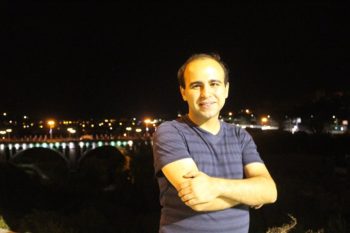
GT: So what can the country do?
Armenak: I firmly believe that today’s Ukraine can have a very bright and promising European future. This future, however, shall be based on intention and readiness of every Ukrainian to defend key European values on a daily basis, to try to make them an integral part of life. On the other hand without financial investments and ambitious long-term business plans it is practically impossible to overcome the existing economic hardship. Ukraine is big and attractive market for investments, however many international corporations still are afraid to invest due to possible political risk. The Ukrainian Government and the business community shall put every existing effort in order to form a safe business environment thus allowing everyone to invest freely in Ukraine. Another interesting point is, how the young people in Ukraine and abroad can contribute to sustainable development of the Ukrainian statehood. The young people and youth civic activist were the driving force of Euromaidan revolution. This is the generation of young Ukrainians who do not want only theoretically discuss substantive matters, but are ready to act in favor of their country and positive change.
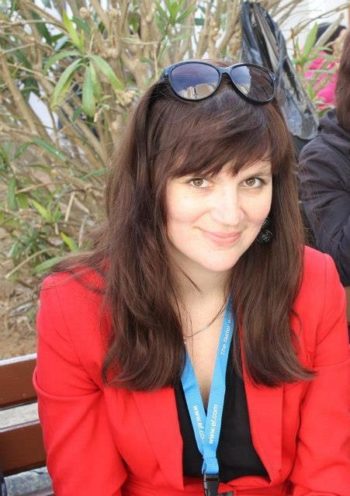
GT: The European media have been quite silent about the conflict in Ukraine in the past months. Will you also give an overview about the situation at the conference?
Alla: We do not plan to focus our discussions only on the current situation in the East of Ukraine. However, I’m sure that during all three panels our speakers will mention not once how recent happenings in Ukraine are affecting everyday life of every person living in Ukraine and Europe in general. This conflict has played a role of the catalyst in the current development in Ukraine. As you know, everything has started with willing of Ukrainian nation to work towards accepting European values in their society. When they went outside on the streets they believed that as a nation they deserve to live in the democratic, tolerant, free and equal country. Unfortunately, peace demonstrations have finished with a big distress for the whole country. The situation with Crimea and Donbas has caused a destabilization of the country’s economy.
GT: But there is hope, as Armenak says?
Alla: It’s still hard times in Ukraine, but there is hope. As a person who is living now in Kyiv I can tell that I’m happy to see huge changes in my city happening within the last year. People who had problems to find jobs, started to think about their own business. They decided that in hard times you should rely only on yourself, so many people became entrepreneurs.
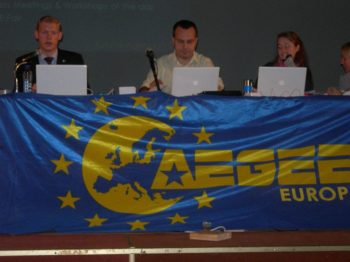
GT: In the “Defending” aspect of your event you will also discuss European Values in Ukraine. Is the society torn in this aspect or does it share similar values?
Armenak: First and foremost we should define what we generally understand under the concept of European values and how they can be reflected on life of every Ukrainian citizen. If we understand under European values for example the effective fight against corruption, high economic competitiveness, open market, freedom of speech, full respect of human rights, dignity and fundamental rights, rule of law, religious tolerance, free and unbiased judiciary, free and transparent elections – then yes, we all want to have really a European Ukraine and you will hardly find any Ukrainian who will be against any of the mentioned things. The Ukrainian society, however, still has a huge Soviet past and it may take quite a long time unless the right perception of European shared values can be adopted by the vast majority of Ukrainians.
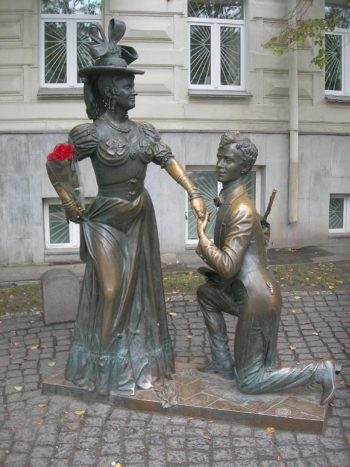
GT: The investing aspect is very interesting, too. Many foreign companies avoid Ukraine, despite a lot of government efforts to attract foreign investment with reforms. Is there hope for a change?
Alla: Yes. As you probably know, George Soros is planning to invest 1 billion dollars into Ukraine. Richard Branson during his visit to Kyiv also said that Ukraine is the country you should think about investing in nowadays. Why it’s worth to invest money and resources in a country which has a conflict on parts of its’ territory? The answer for this questions was recently published by Horizon Capital in their report. I would really suggest to check it to be ready for the discussion during the conference. We are trying to get speakers for this panels who will share their thoughts about the investment future of Ukraine as well as they will tell why they are doing their business in Ukraine and not looking for opportunities to move abroad.
GT: The third aspect of the programme analyses the role of young people in the Political Transformation of Ukraine. Do many young people want to be involved in this and can you give positive examples – also aside from AEGEE – what they do?
Armenak: The young people and students played an instrumental role in the success of Euromaidan. In order to guarantee a sustainable development, the government of any democratic state should try to provide necessary conditions for a broader engagement of young people in the political life. In order to have a bigger youth political engagement the public institutions should try to work hand in hand with the civil society organizations and students groups, thus making their voice heard and opinion respected. The Ukrainian students and young people have quite big experience in field of civic activism, which can be effectively transformed to the political level, thus paving a way for the further democratic development of the country. Ideally, if we want to have less dirty politics, we need also new and cleaner people enrolled in politics, young people with strong stands on policy matters can really make visible change.
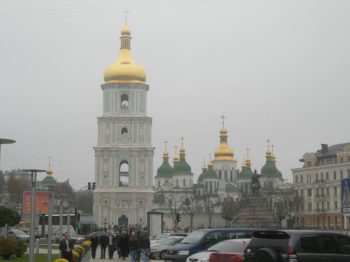
GT: Did you manage to win prominent speakers?
Alla: We have already several speakers confirmed: a representative of the Ministry of Foreign Affairs of Ukraine, a Project Manager of the UNDP Project of the UN representation in Ukraine and also youth activists. We are waiting for confirmations from other Ministries, diplomatic institutions as well as civil activists. You can find more information about our speakers via our facebook page and on our website.
GT: Each of these topics could be big enough for weekend congresses. Why do you only make a one-day event?
Alla: Because AEGEE-Kyiv is hosting an Agora. It’s already not easy to organise even a one-day event having it right before the Agora. But we agree that the content part of the conference could fit to an event of several days, so this could be an idea for an event of one of Ukrainian locals for next spring.
GT: Anything you would like to add?
Alla and Armenak. Check our website. And follow our updates on https://www.facebook.com/YoungUkraineConference.

